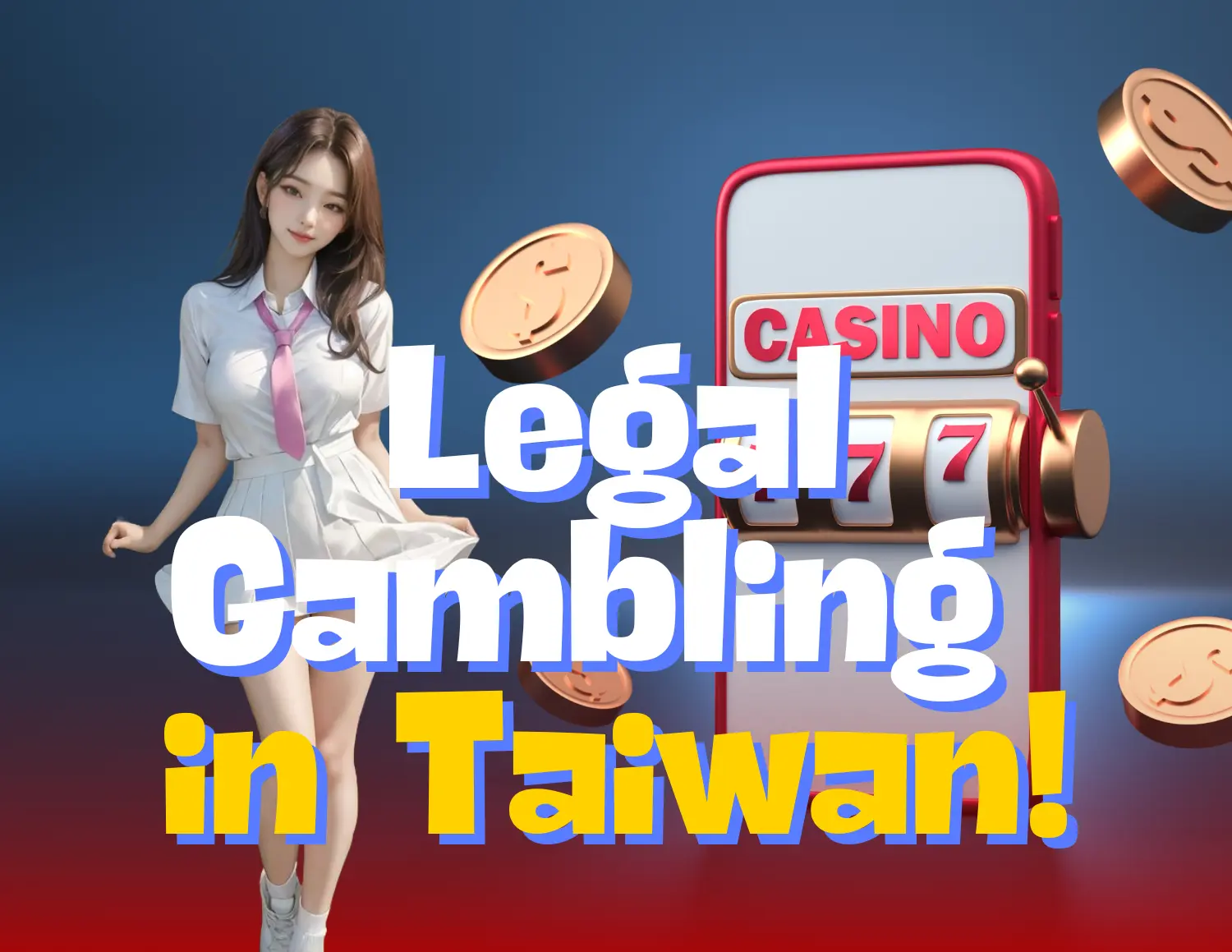Legal Gambling in Taiwan
Introduction
Gambling has long been a part of Taiwan’s cultural and social fabric, with diverse forms of betting and games of opportunity dating back to ancient times. However, the practice was largely unregulated for decades. It is leading to the rise of illegal gambling activities that pose significant challenges to public safety and social order. In recent years, the Taiwanese government has taken steps to establish a legal framework for gambling, aiming to address these concerns while also harnessing the possible economic benefits of a regulated gambling industry.
This article digs into the legal landscape of gambling in Taiwan. Exploring the historical context, the regulatory framework, the different types of legal gambling, the impact on society and the economy, and the measures in place to promote responsible gambling practices. By examining the complexities and nuances of this issue. We can understand the role of legal gambling in Taiwan and the considerations that policymakers must navigate to ensure a balanced and sustainable approach.

Historical Context
The Origins of Gambling in Taiwan
Gambling has a long and storied history in Taiwan, with evidence of various forms of betting and games of chance dating back to ancient times. Traditional Taiwanese cultures are influenced by Chinese, Japanese, and other regional traditions. It has long incorporated gambling-related activities into its social and cultural practices.
One of the earliest recorded instances of betting in Taiwan dates back to the 17th century when Dutch settlers introduced new games and betting practices. Over time, these activities became more widespread, with the local population embracing gambling as a form of entertainment and a means of generating income.
The Rise of Illegal Gambling
Despite the historical presence of gambling in Taiwan, the practice remained largely unregulated for many decades. This led to the proliferation of unlawful gambling operations, which thrived in the absence of a clear legal framework. These underground activities, often associated with organized crime, posed significant risks to public safety and social order as they operated outside government oversight and control.
The growth of illegal gambling activities in Taiwan was fueled by several factors, including:
- The lack of a complete legal and regulatory system for gambling
- The high demand for gambling among the Taiwanese population
- The involvement of criminal organizations in the underground gambling industry
The Need for Regulatory Reform
As the issue of illegal gambling became increasingly pressing, the Taiwanese government recognized the need to address the problem and establish a more structured approach to gambling. This recognition stemmed from a desire to:
- Enhance public safety and social stability by curbing the impact of organized crime in the gambling sector
- Generate revenue for the government through the taxation and regulation of legal gambling activities
- Provide a controlled and supervised environment for gambling, mitigating the possible negative impacts on individuals and communities.
Regulatory Framework
The Offshore Islands Development Act and the National Property Act
The current legal framework for gambling in Taiwan is primarily outlined in two key pieces of legislation: the Offshore Islands Development Act and the National Property Act.
The Offshore Islands Development Act
The Offshore Islands Development Act, first enacted in 1990, is the primary law governing the development and regulation of gambling activities on Taiwan’s offshore islands. This legislation empowers the government to grant special permissions and licenses to operate casinos and other gambling facilities on these islands, which foreign tourists primarily inhabit.
The National Property Act
The National Property Act, introduced in 1973 and amended several times, provides the legal basis for the government’s oversight and control of national properties, including those used for gambling-related activities. This act is the foundation for regulating and taxing legal gambling operations in Taiwan.
Regulatory Authorities
Several key government agencies oversee the implementation and enforcement of gambling laws and regulations in Taiwan:
- Ministry of the Interior: The Ministry of the Interior ensures the public safety and social order aspects of gambling operations, coordinating with local law enforcement authorities.
- Offshore Islands Development Commission: Under the Executive Yuan, this specialized agency manages and supervises gambling activities on Taiwan’s offshore islands.
These regulatory authorities work together to establish and enforce a comprehensive set of rules and guidelines governing the gambling industry, ensuring it operates transparently, fairly, and responsibly.
Licensing and Oversight
To operate legally in Taiwan, gambling providers must obtain the necessary licenses and permits from the relevant regulatory authorities. This licensing process involves a rigorous vetting procedure to ensure that the applicants meet the government’s strict financial stability, operational integrity, and social responsibility requirements.
Taxation and Revenue Generation
The Taiwanese government generates revenue from the legal gambling industry through a comprehensive system of taxation and fees. Gambling operators must pay various taxes. Including corporate income tax, value-added tax, and gaming-specific levies channeled back into public programs and initiatives.
The revenue generated from legal gambling has become an essential government funding source. It contributes to the development of infrastructure, social welfare programs, and other public services. However, the government also recognizes the need to balance these economic benefits with the potential social and ethical considerations associated with gambling.
Types of Legal Gambling
Sports Betting
One of the primary forms of legal gambling in Taiwan is sports betting, which is operated through the Taiwan Sports Lottery. Established in 1999, the Taiwan Sports Lottery offers various betting options on different sporting events, including professional and amateur leagues, both domestic and international.
The Taiwan Sports Lottery is the country’s only legal channel for sports betting. And it is subject to strict regulations to guarantee fairness, integrity, and responsible gambling practices. Proceeds from the lottery are used to fund sports development initiatives and cultural programs across Taiwan.
Lotteries
Lotteries are another significant component of the legal gambling landscape in Taiwan. The Taiwan Lottery is operated by the government-owned Taiwan Lottery Company. They offer a diverse range of lottery games, including:
- Super Lotto: A popular weekly lottery draw with a large jackpot prize.
- Daily Cash: A daily lottery game with smaller, more frequent payouts.
- Scratch Cards: Instant-win scratch tickets available for purchase at authorized retail outlets.
The Taiwan Lottery is a popular form of gambling among the Taiwanese population, with the proceeds from ticket sales being used to support various public welfare initiatives. Including social services, education, and infrastructure development.
Casinos
While most forms of casino gambling are prohibited in Taiwan, the government has granted licenses for operating casinos on certain offshore islands. They are subject to stringent regulations to prevent organized crime infiltration and protect local communities from the potential negative impacts of gambling.
The Penghu Islands, located off the western coast of Taiwan, are the only areas where casino gambling is legal. The government has issued limited casino licenses to operators, who must adhere to strict guidelines and undergo regular audits and inspections.
Impact on Society and Economy
Economic Benefits
Legalizing and regulating gambling in Taiwan has brought significant economic benefits to the country. The gambling industry has become a valuable source of tax revenue for the government. The proceeds will be channeled into various public programs and initiatives.
Additionally, the legal gambling sector has created employment opportunities, both directly in the industry and indirectly through supporting services and infrastructure. This has contributed to the overall economic development of the regions where gambling activities are concentrated, such as the offshore islands.
Concerns about Social Impacts
While the economic benefits of legal gambling are prominent. There are also concerns about its potential negative impacts on society. The government and policymakers have recognized the need to balance the economic advantages with the possible social costs associated with gambling, such as problem gambling, addiction, and related social problems.
Some of the critical social concerns regarding legal gambling in Taiwan include:
- Increased risk of gambling addiction and problem gambling behaviors
- The potential for gambling-related crimes, such as money laundering and fraud
- The disproportionate impact on weak populations, such as low-income individuals and youth
- The possible erosion of traditional cultural values and social cohesion
To address these concerns, the government has implemented various measures to promote responsible gambling and mitigate the negative social impacts of the industry.
Balancing Economic and Social Considerations
Policymakers in Taiwan face the challenge of striking a delicate balance between the economic benefits of legal gambling and the potential social costs. This requires a multifaceted approach that combines effective regulation, robust consumer protection measures, and targeted social support programs.
The government’s efforts in this regard have focused on:
- Strengthening the regulatory framework to ensure the integrity and transparency of gambling operations
- Implementing responsible gambling practices, such as age restrictions, self-exclusion programs, and advertising guidelines
- Investing in problem gambling prevention and treatment services to support individuals and communities affected by gambling-related issues
- Engaging with stakeholders, including the gambling industry, social welfare organizations, and the public, to foster a collaborative process to address the challenges posed by legal gambling
By carefully balancing these considerations, Taiwan aims to harness the economic potential of the gambling industry while mitigating its social impact and ensuring that the overall benefits outweigh the potential costs.
Responsible Gambling Measures
Age Restrictions and Verification
One of the critical responsible gambling measures in Taiwan is the implementation of strict age restrictions for participation in gambling activities. The legal gambling age in Taiwan is set at 20 years old, and gambling operators are required to implement robust age verification procedures to prevent underage individuals from accessing their services.
This age limit is enforced across all forms of legal gambling. Including sports betting, lotteries, and casinos, to protect vulnerable populations and ensure that gambling remains a recreational activity for adults.
Self-Exclusion Programs
To address the issue of problem gambling, the Taiwanese government has mandated the implementation of self-exclusion programs by licensed gambling operators. These programs permit individuals to exclude themselves from betting activities voluntarily. Either temporarily or permanently, to help them regain control over their gambling behavior.
The self-exclusion process typically involves the individual submitting a formal request to the gambling operator, who then takes the necessary steps to block the person’s access to their services. The government closely monitors these self-exclusion programs’ implementation and effectiveness to ensure they serve their intended purpose.
Advertising and Marketing Restrictions
The Taiwanese government has strict regulations on the advertising and marketing of legal gambling. These restrictions aim to limit public exposure, especially for vulnerable groups. The key elements include:
– Limits on content, placement, and timing of ads
– Mandatory inclusion of responsible gambling messages
– Prohibition of targeting minors or using youth-appealing content
These measures create a more responsible gambling environment, prioritizing consumer protection.
Counseling and Treatment Services
To support those affected by problem gambling. The Taiwanese government has developed comprehensive counseling and treatment services, including:
– Gambling addiction treatment centers
– 24/7 hotlines and online resources
– Community-based programs for education and support
These services are government-funded to ensure accessibility for those in need.
Ongoing Monitoring and Evaluation
The government continuously monitors and evaluates the legal gambling industry. This involves data collection, research, and analysis to assess policy effectiveness and identify improvements. This ensures the industry aligns with Taiwan’s social, economic, and ethical priorities.
Conclusion
Legal gambling in Taiwan requires balancing economic, social, and ethical considerations. Policymakers must continuously evaluate and refine policies. This ensures that legal gambling contributes positively to Taiwan’s development and prosperity.









